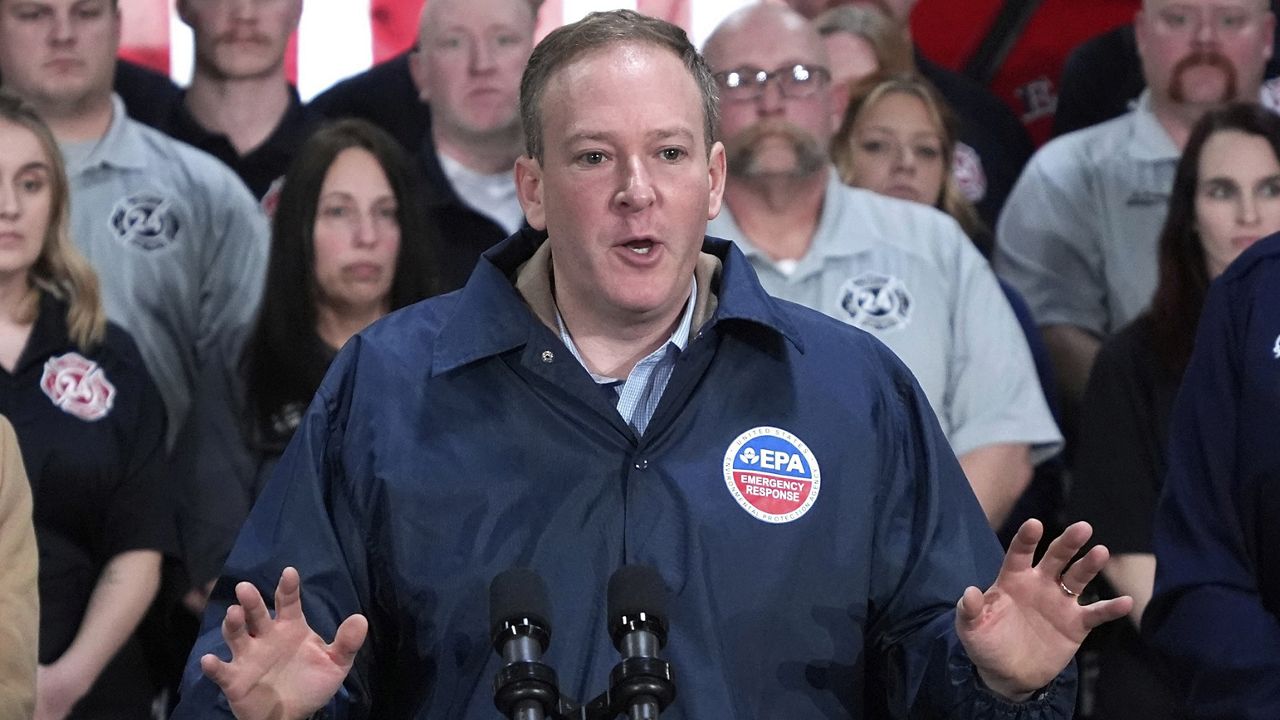Reversing the statewide housing shortage will require work by the Legislature in addition to recent executive mandates Gov. Kathy Hochul declared last month, she said Wednesday.
State Democrats have agreed on little in regards to the state housing crisis this year — except that there is one. But lawmakers won't be returning for a special session to pass housing legislation anytime soon.
State leaders have months to consider Hochul's executive orders declared last month to address the housing crisis after she and the Legislature failed to reach consensus on a housing plan, including $650 million up for grabs to stimulate construction of new units around the state to communities that welcome the projects.
"I had to enact in series of executive actions, executive orders, to offset the fact that the Legislature was not able to come to agreement with the plan that I put forth last year to build more housing," the governor said. "In the absence of their action, I took the leadership role and said, 'Well, let me see what we can do to jumpstart a lot of projects,' and literally build thousands of more units for New Yorkers."
Hochul's top aides and lawmakers are using the off-session months to garner allies in weighing the best housing initiatives, building incentives and other solutions to reverse the statewide shortage when the Legislature returns to Albany.
"Pro-housing communities" or localities in support of housing projects that will streamline their approval will be given priority in awards for the $650 million declared in Hochul's executive order.
Homes and Community Renewal Commissioner RuthAnne Visnauskas says the department will release more detailed guideliens for the Pro-Housing Community designation, and the program will be launched, in the coming weeks.
"We're hopeful that that will get communities really looking towards how to increase their housing stock everywhere," she told Capital Tonight.
Visnauskas said lawmakers were uncomfortable with a provision in Hochul's initial proposal to allow the state to override local zoning rules to ensure projects get off the ground. The executive mandates are a start, but not enough, she said, to turn the tide.
"Ultimately, we need the Legislature if we're really going to create policies that are going to impact our housing growth substantially," the commissioner said. "Other states passed incentive-based programs and they weren't enough, and we really have to look to mandate."
Officials are looking at converting hotels, offices and other buildings into housing and preserving existing units to reduce real estate costs and keep people from leaving the state after the Legislature fought against Gov. Hochul's housing compact in the last budget to create 800,000 new units over the next decade.
But the governor's plans have drawn criticisms from progressive lawmakers they lack labor protections.
Senate Labor Committee chair Jessica Ramos says stakeholders who build the housing projects need to be at the negotiating table. She's pushing for all state-funded projects to have prevailing wage requirements.
"People will always need to be able to afford to live in the city that they are building," Ramos said Wednesday. "A large reason why it's so expensive is actually precisely because there is such a limited supply of housing. So remedying this problem can and will be possible if we actually bring the workers to the table to talk about negotiate wages on different projects."
Meanwhile, general contractors and construction companies are warning against requirements that would increase project costs. Officials with the Associated General Contractors of New York State stand firmly against attaching prevailing wage requirements on private construction projects.
"There are economic development incentives or other types of public inducements," Elmendorf said. "There's a tendency to want to pile on these requirements at the same time that the state is trying to encourage certain types of activity, whether it's economic development, or affordable housing development. That kind of really runs counter to and makes it more difficult to actually get those projects going, get those shovels in the ground and make them a reality."
Elmendorf says they'll continue to push for the Legislature to pass other cost-savings measures, including changing the state's 19th century scaffold laws, which hold construction companies liable for gravity-related accidents.
Lawmakers floated returning to Albany this year to pass housing-related measures that remain at a stalemate. The Legislature posed an agreement in the final days of session to extend New York City's 421a affordable housing tax incentive program and implement tenant protections to limit evictions, which Hochul rejected.
The senator wants Hochul to draft a counter measure to the Legislature's last failed proposal to jump-start negotiations sooner than later.
"[If] she has a good plan that has included all the stakeholders, then I'm all ears and more than willing to go back to Albany and get to work so that we can get to building the affordable housing we need as soon as possible," Ramos said.
The most recent announcements and funding awards have been concentrated in New York City and surrounding communities, Buffalo and other urban areas.
Lawmakers from surban and rural areas want legislative leaders to diversify housing stock in less densely populated parts of the state — pushing for funds for smaller communities to improve old, failing infrastructure. Hudson Valley Democrat Sen. James Skoufis is advocating for more money to upgrade roads, water and sewer lines and other infrastructure that would help a locality accommodate additional housing supply.
"We have to strike the right balance," said Skoufis. "There are right ways and wrong ways to do this. ... [but] if we're able to intelligently build in the right places, the right types of homes and increase their housing stock, then prices, rents, the costs of building a home will drop substantially."
The 2023-24 state budget included $500 million for clean water projects statewide.
Heastie toured Columbia County with Assemblywoman Didi Barrett (D-Hudson) this week to learn abour rural housing needs and concerns in smaller communities.
Lawmakers and the governor say they're continuing work on housing proposals, which will likely be discussed at next year's budget negotiating table. Hochul hopes the Legislature will have a plan they'll work on with the Executive Chamber.
"We'll try to really work hard with them once again," Hochul said. "I'm not giving up; I'm trying to find a different approach to get them to 'Yes.' Because 'No' is not an answer that we can accept, because we are in a crisis situation."










